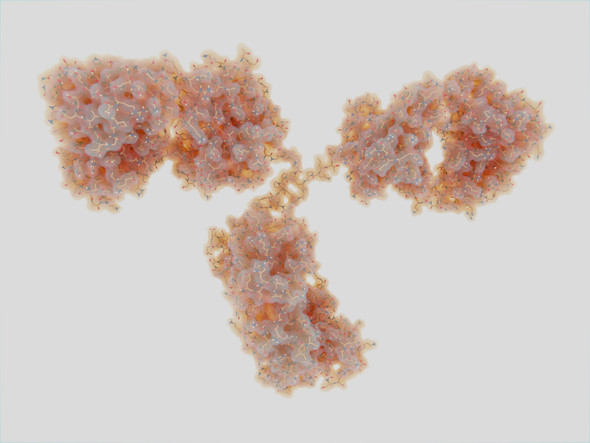Description
MOUSE ANTI-CANINE CORONAVIRUS NUCLEOPROTEIN ANTIBODY (M938)
Mouse anti canine coronavirus Nucleoprotein antibody (M938) is a monoclonal antibody that is specific for canine coronavirus (CCoV) nucleoprotein (nucleocapsid).
PRODUCT DETAILS – MOUSE ANTI-CANINE CORONAVIRUS NUCLEOPROTEIN ANTIBODY (M938)
- Specific for canine coronavirus Nucleoprotein (nucleocapsid).
- Isotype – Mouse IgG1.
- Purified by Protein A column chromatography.
- Suitable for use in immunoassay development or other applications.
BACKGROUND
Human coronaviruses such as SARs and MERs have raised concerns about coronaviruses as agents of serious infectious disease. Canine coronavirus (CCoV) causes a highly contagious disease of dogs that primarily attacks the intestinal tract. CCoV infection is difficult to identify and symptoms often resemble those of other viruses such as canine parvovirus and canine distemper virus.
CCoV are enveloped viruses with a large (27-32 kb) single-stranded, positive-sense RNA which is complexed with the highly basic nucleocapsid phosphoprotein (N) to form a helical capsid found within the viral envelope. This nucleoprotein packages the positive strand viral genome RNA into a helical ribonucleocapsid (RNP) and plays a fundamental role during virion assembly through its interactions with the viral genome and membrane protein M. It plays an important role in enhancing the efficiency of subgenomic viral RNA transcription as well as viral replication.
Coronavirus membranes contain at least three viral proteins: the spike (S), envelope (E), and membrane (M) proteins. The S glycoprotein mediates viral attachment to specific cell receptors and fusion between the envelope and plasma membrane and it is the main inducer of virus-neutralizing antibodies. Coronaviruses use a variety of coreceptors during entry, including DC-SIGN. The E protein plays an important role in viral envelope assembly, but it is not essential for virus propagation. The M protein, the most abundant structural component, is a type III glycoprotein (Le Poder, 2011).
REFERENCES
- Le Poder, S (2011). Feline and Canine Coronaviruses: Common Genetic and Pathobiological Features, Advances in Virology, vol. 2011, Article ID 609465, 11 pages.











